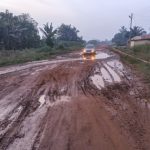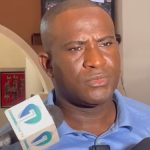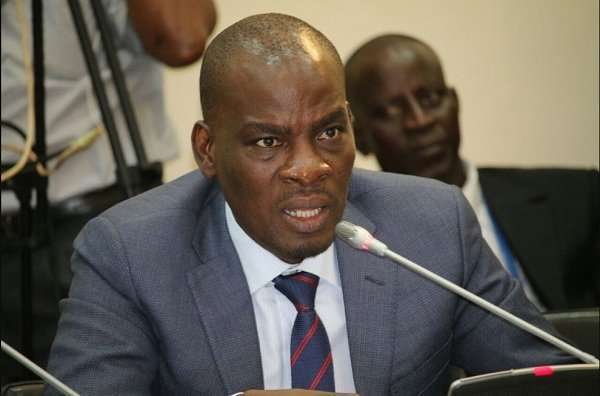Government has instructed law enforcement agencies to clamp down on the use of motorcycles for carrying fare-paying passengers, a practice popularly referred to as okada.
The practice is outlawed in Ghana since 2012 but implementation has not been effective because it provides jobs and is a convenient means of movement in traffic prone cities.
The government is now calling for the Motor Transport and Traffic Directorate (MTTD) of the Ghana Police Service to device ways to curtail the phenomena which have contributed to escalating fatalities and injuries.
The Deputy Information Minister, Pius Enam Hadzide emphasized that it was “the position of the government that all laws of this country including the L.I. [on okada] that the NDC sponsored, promulgated and passed in parliament should be enforced by any responsible government”.
Several Okada stations have sprawled across the country with authorities appearing helpless in dealing with the matter.
Challenge in enforcing okada ban
One of the contributing factors fueling okada is the identification of an okada rider and proof to apprehend culprits for prosecution.
Head of Education Research and Training at the MTTD, Superintendent Alexander Obeng has told theghanareport.com that his officers deployed countless strategies to ensure enforcement, despite being “laborious and difficult”.
The methods have, however, failed considering the dynamic and complex nature of the situation.
READ ALSO: SPECIAL REPORT: The Okada Angels Of Death- The Big Debate (Part 1)
Among the tactics was the roll-out of swoops which the cops still do.
Another way of fighting the menace was sting operations. Police officers would dress in mufti and engage the service of okada operators. The destination would be a location with the presence of a team of other cops to apprehend the rider at the point where the disguised officer attempts payment.
But this “proved very dangerous for the traffic police officer because we anticipated a situation where, in the course of struggle or getting to know that the one behind the pillion is a police officer, the likelihood of dangerous riding can endanger lives,” Superintendent Obeng narrated.
However, Mr Hadzide insists that government has provided the needed support for implementation.
His said the Akufo-Addo administration was committed to “resolving the challenge of the implementation gap” to properly enforce the law.
The recent debate on okada has been rekindled by a promise of the flagbearer of the opposition National Democratic Congress (NDC), former President John Dramani Mahama, to legalise the illegal trade for economic benefits.
The NDC supervised the passage of the bill to outlaw okada.
For Mr Hadzide, cited his political rivals of “shortsightedness and no proper planning” before passing the law if the NDC is making a u-turn to have okada legalized.
READ ALSO: SPECIAL REPORT: The Okada Queen Of Accra-The Big Okada Debate (Part 2)
Dispassionate discussion on safety
Meanwhile, Head of Regulations, Inspection and Compliance at the National Road Safety Authority (NRSA), Kwame Koduah Atuahene, is calling for a dispassionate on the matter.
According to him, data from the first half of 2020 suggests that motorcycles are the leading cause of accidents if one takes out vulnerable pedestrians.
“Ten years ago they (motorcycles) were number nine [but] today they are number two. In the last 10 years, cycle fatalities have gone up by 400%. If you take it to 2001 it has gone up by over a 1000%,” he explained.
READ ALSO: ‘Legalize Okada’ – NPP MP Backs Mahama
He said there are conditions which contribute to the current situation such as lack of dedicated lanes for motorcycles.
He pointed out that the capital has a variety of transport modes yet “these riders do not show any regard for traffic regulation” which binds all vehicles.
He is calling for a dispassionate discussion which will address the safety of all road users.
SPECIAL REPORT: The Day Two Rival MPs Agreed On Legalization -The Big Okada Debate (Final Pt)
He says legalisation would potentially spike the number of motorcycle accidents and deaths.
If the country can tackle the accident figures “the why not”.
He argued that motorcycle was essential to the transportation mix in certain areas due to poor road network and inadequate commercial vehicles.
Alternative livelihood for okada riders
With employment one of the major drivers of okada spike, the government has promised a scheme to provide loans for riders to acquire cars to use for commercial transportation.
Vice President, Dr Mahamudu Bawumia, has stated that the government will not legalise okada.
Rather, Dr Bawumia said that the riders “need to graduate from this risky Okada riding to a safer means of transportation.”
















